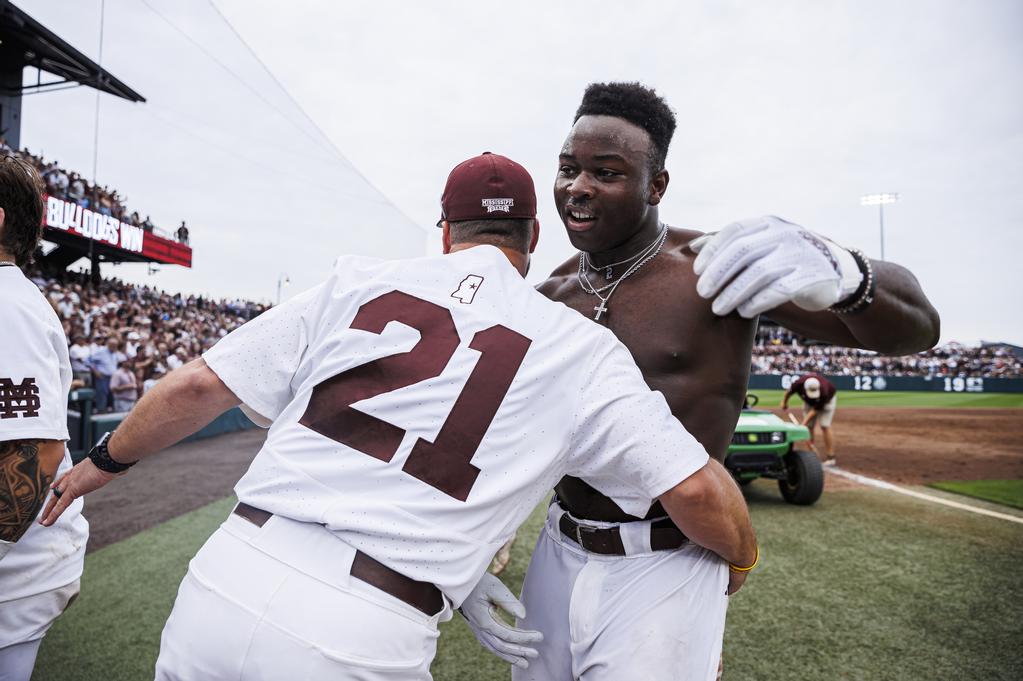
Ole Miss will pay its new men’s basketball coach $13.6 million over the next four years.
But in truth, the hiring of Chris Beard has already cost the university something beyond that – a big chunk of its integrity.
In light of its choice of coach, it will be difficult for Ole Miss to be a credible voice in the effort to combat domestic abuse and violence.
Those who follow sports are familiar with the controversy surrounding Beard. For those who aren’t familiar, here’s that story:
On Dec. 12, Beard, the head coach at Texas, was arrested for a third-degree felony charge of “assault against a family member for strangulation” related to an incident involving the coach and his then-fiancee’.
Texas suspended Beard immediately and fired him on Jan. 6.
On Feb. 5, the district attorney handling Beard’s case announced his office would not prosecute Beard based on “case evidence and the fiancee’s wishes not to prosecute.”
On Monday, Ole Miss announced Beard’s hiring.
The district attorney’s decision not to prosecute allows Beard to proclaim innocence and gives the university cover for making the hire, at least superficially.
The Rebels get one of the top coaches in America, a coach who would never have considered the job under ordinary circumstances. For those whose primary devotion to Ole Miss revolves around athletics, the unpleasant circumstances that brought him to Ole Miss will quickly be forgotten. Winning, as they say, covers a multitude of sins, and Beard’s track record says he’ll win at Ole Miss.
Yet for those whose interest in Ole Miss goes far beyond sports, those who value the university’s reputation, this should be considered a disturbing hire.
Beard will not face criminal charges, but in the court of public opinion there is ample reason to be suspect of his claims of innocence. Based on what is known of just the evidence that was never disputed, Beard would have a very difficult time proving his innocence. He doesn’t have to, obviously. In our system, defendants are not judged on whether they are guilty or innocent but only on whether the evidence is sufficient to convict them beyond a reasonable doubt.
In most of these kinds of questions, it’s a moot point.
In a review of 135 studies of intimate partner violence, researchers Joel Garner and Christopher Maxwell found two-thirds of those arrested for the offense are never brought to trial.
Our judicial system’s inability (or unwillingness) to aggressively prosecute intimate partner violence and other forms of domestic abuse sparked the “Me Too” movement among victims to raise awareness, promote healing and seek justice.
One of the greatest obstacles in prosecuting these types of cases emerges when victims recant their story, often the point of saying they were the real instigators, that law enforcement got it wrong in their initial report or that both the victim and perpetrator were equally to blame, all of which is in stark contrast with the evidence and the victim’s statements immediately after the incident.
Victims recant for a variety and combination of reasons — fear of a loss of security, fear of reprisal, affection for the perpetrator and the impact it will have on family, and being told by the perpetrator and others that the incident wasn’t really that bad and that they can be assured it will never happen again. (The study shows that 60 percent of those convicted of domestic abuse are rearrested for the same offense within two years.)
The perpetrator says, “That’s not who I am” and is often believed by the one person who knows that’s not true.
The cumulative pressure that builds when many of these emotional conflicts emerge often leads the already-traumatized victim to abandon her right to justice.
We have no sure way of knowing whether Beard is innocent. But what we do know, based on the testimony of thousands of victims of intimate partner violence/domestic abuse, is that every single defense now being presented by Beard, his former fiancee’ and the district attorney’s office has a painfully familiar ring.
Just because Beard proclaimed his innocence does not mean Ole Miss was required to hire him. After all, there were a lot of potential coaches who the university wouldn’t have to be ashamed to be associated with.
Chris Beard has yet to coach a game at Ole Miss.
But Ole Miss has already suffered some losses since his arrival — a loss of credibility, a loss of moral authority, a loss of reputation.
That’s an awful lot to pay for a basketball coach.
Slim Smith is a columnist and feature writer for The Dispatch. His email address is [email protected].
Slim Smith is a columnist and feature writer for The Dispatch. His email address is [email protected].
You can help your community
Quality, in-depth journalism is essential to a healthy community. The Dispatch brings you the most complete reporting and insightful commentary in the Golden Triangle, but we need your help to continue our efforts. In the past week, our reporters have posted 32 articles to cdispatch.com. Please consider subscribing to our website for only $2.30 per week to help support local journalism and our community.



